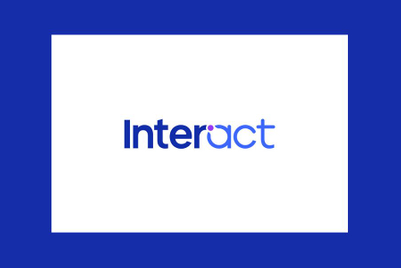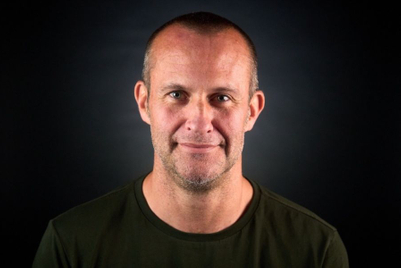
| PARTNER CONTENT |
As internet and smartphone usage shoots up across APAC, consumers and governments alike are getting more and more concerned about data privacy issues. While data privacy laws vary across Asia, the current trend is towards a regulatory framework like that in Europe, says Dr. Sachiko Scheuing, European privacy officer for Acxiom. China, Japan, and South Korea have the strictest laws and enforcement activity, though other countries in the Central and Southeastern areas are rapidly ramping up.
IPG Mediabrands, Acxiom and the newly launched ad tech company Kinesso have been at the forefront of this effort, with not only a clear-sighted theoretical framework, but also robust tech and marketing tools to execute this vision.

When it comes to ethical data collecting and storing, misinformation is rife—in part due to the ever-evolving tech and thus, definitions.
According to Scheuing, data ethics “is the deliberate and intentional effort regarding the collection, use, and sharing of personal data that takes into account fundamental values of all stakeholders involved, particularly those of consumers and individuals,”
Misperceptions of ethical data collecting & storing
The number one misperception that people have is that ethical and compliant data protection simply means collecting personal data with an opt-in consent.
“Consent is only one of the possible legal grounds for compliant collection of personal data. In addition to consent, laws of most countries around the globe allow data to be collected when it is necessary for executing an agreement or where there is a ‘legitimate interest.’ When we talk about ethical data collection and storage, we really are talking about taking measures to ensure the legality and fairness through a robust and accountable data governance and stewardship program,” Scheuing says.
“In our experience, most companies are already trying to do the right thing regarding data use and handling. Acxiom’s Ethics by Design framework formalises that culture and ensures that privacy and ethical considerations are addressed early and often throughout the data management lifecycle,” adds Scheuing. Ethical data collection and storage need to include ethical data use by preventing harm to data subjects, namely not only to empower individuals with more choices but to also make use of personal data more transparent and fair to data subjects.
Another misconception might be that ethical data and the ‘bottom line’ are in opposition to each other. After all, the rationale is that as one acquires more data of its targeted customers, the more effective real-time marketing becomes and the better leads it generates. Scheuing sees ethical data and a company’s well-being as complementary.
“It is important to nurture a culture which embraces the ethical use of data because that is the key way to develop trust with your consumers, clients and partners,” she says. “At a minimum, organisations must invest appropriately in data governance programs. When a culture of ethical data use is engrained within the company, discussion on evaluating data use during a Privacy Impact Assessment (PIA) will be constructive and not confrontational. In our experience, PIA sessions become moments of learning for both the engineers and the data ethics team. The data ethics team gains a better understanding of the different engineering thoughts that went into the process, and our engineering colleagues come to understand how protection mechanisms can be incorporated.”
How does ethical data work at the operational level?
IPG remains at the forefront of ethical data sourcing and storing, having ramped up efforts to ensure that the Ethics by Design framework created at Acxiom is applied to products and services.
This means going beyond simple legal compliance and examining the whole data process flow for potential unintended consequences, such as whether the proposed use of data has an ‘impact on human dignity’ or whether it ‘is respectful of the person.’
The framework is an “indispensable means of holding ourselves accountable,” adds the European privacy officer for Acxiom.
To achieve this, IPG is taking a digital responsibility approach, with the goal of building a data protection ecosystem that focuses on four key principles:
1. Future-oriented regulation of data processing and respect for the rights to privacy and data protection
2. Accountable controllers who determine personal information processing
3. Privacy-conscious engineering and design of data processing products and services
4. Empowered individuals
The company’s in-house marketing technology unit Kinesso, set up in Q4 2019, and Acxiom, a data marketer acquired by IPG the year before, are playing important roles in ensuring these principles are carried out.
Kinesso helps marketers amplify the impact of traditional and addressable media through data and tech, and includes Cadreon, IPG’s addressable media activation experts. Already available in Japan and Hong Kong, Kinesso is set to roll out in additional APAC markets in 2020. Meanwhile, Acxiom is a database marketer that helps many of the world’s largest companies manage their own first-party data, and has one of the world’s largest commercial databases.
While they are two separate entities, what’s key is that “Kinesso builds on top of Acxiom’s global data layer, in addition to pulling in other leading data sources,” says Chad Engelgau, chief data strategist and head of client management at Kinesso.
The fluidity between the two means that IPG companies and its clients can tap Kinesso for expertise such as media-mix modeling, multi-touch attribution, data and platform operations, and campaign reporting. The acquisition of Acxiom has helped IPG leapfrog competitors in its data management capabilities. After all, as Arun Kumar, IPG’s global chief data & marketing technology officer, said in an interview with Campaign earlier this year, “who better than Acxiom, who have been dealing with really sensitive data for over 50 years, to help us understand how to deal with sensitive information on this side.”
That is the real strength of the agency network—its ability to deliver clear messages to the right people quickly and more efficiently with a conscious commitment to data ethics.


.jpg&h=334&w=500&q=100&v=20250320&c=1)


.png&h=334&w=500&q=100&v=20250320&c=1)

.jpg&h=334&w=500&q=100&v=20250320&c=1)
.png&h=334&w=500&q=100&v=20250320&c=1)
.png&h=334&w=500&q=100&v=20250320&c=1)

.png&h=334&w=500&q=100&v=20250320&c=1)



.jpg&h=268&w=401&q=100&v=20250320&c=1)
.png&h=268&w=401&q=100&v=20250320&c=1)
.jpg&h=268&w=401&q=100&v=20250320&c=1)

